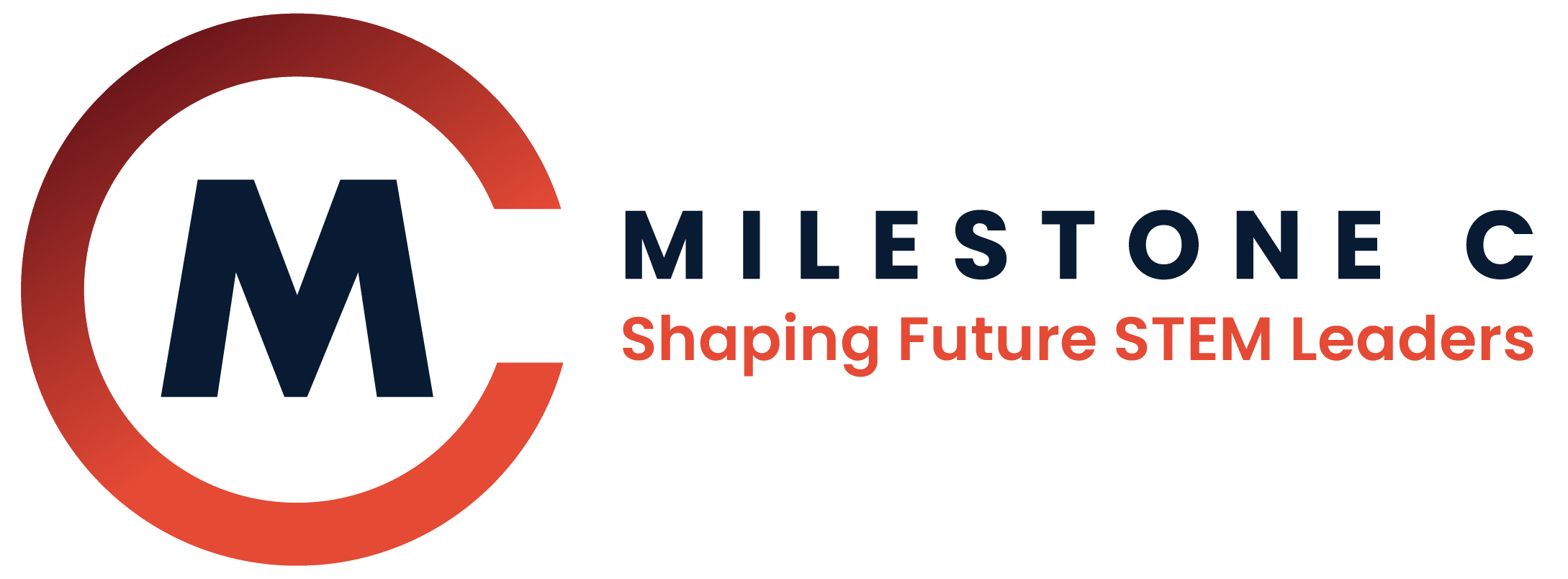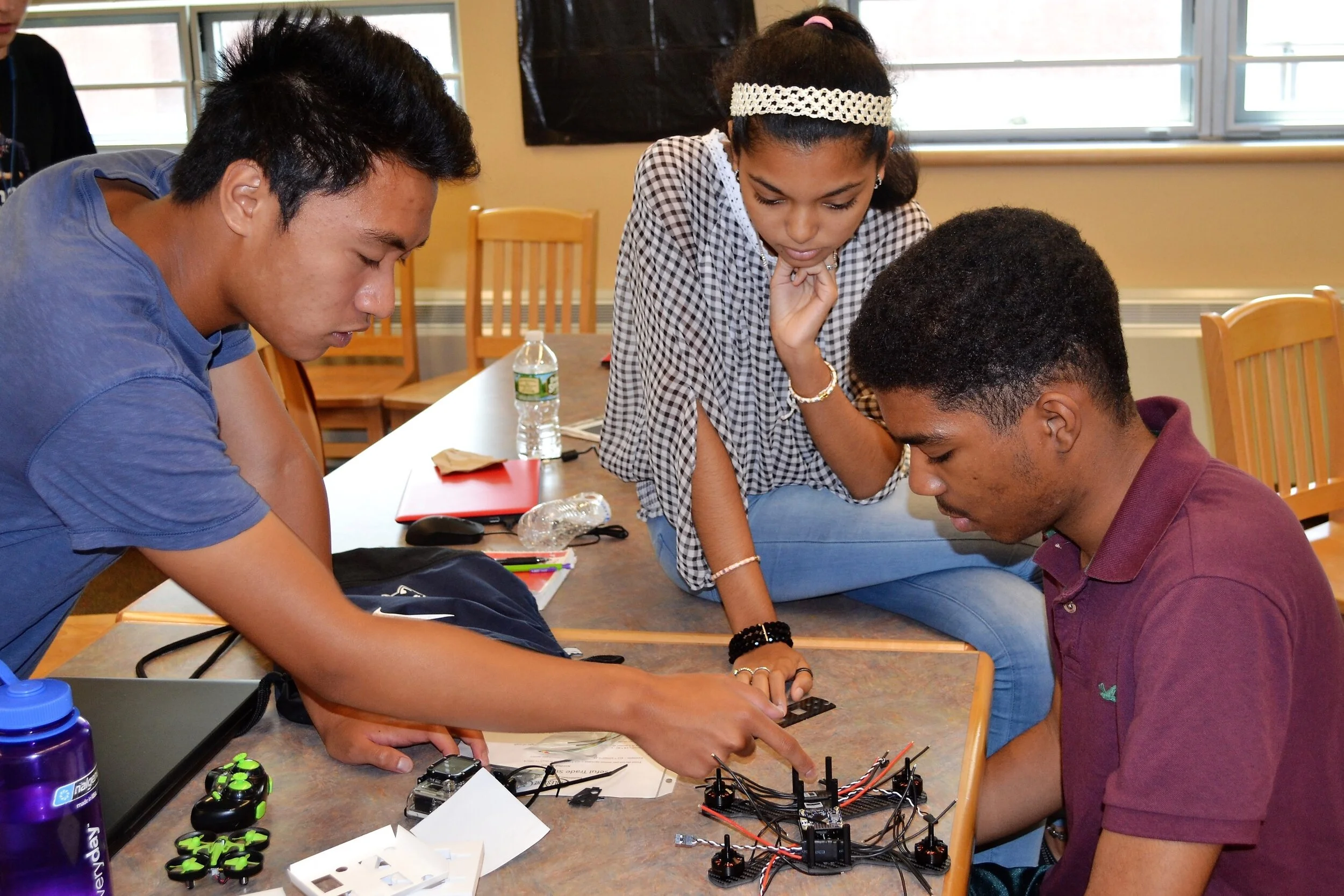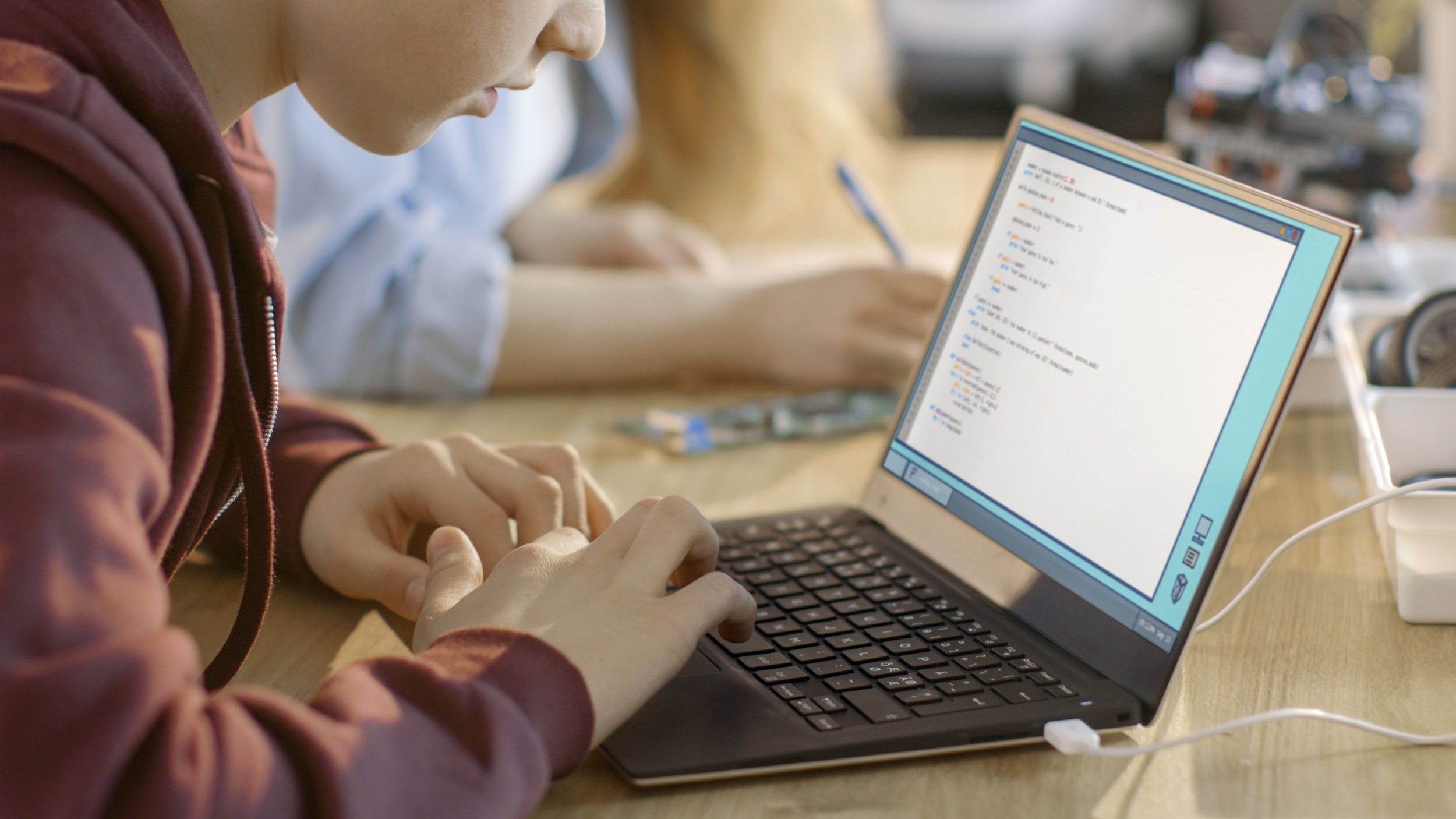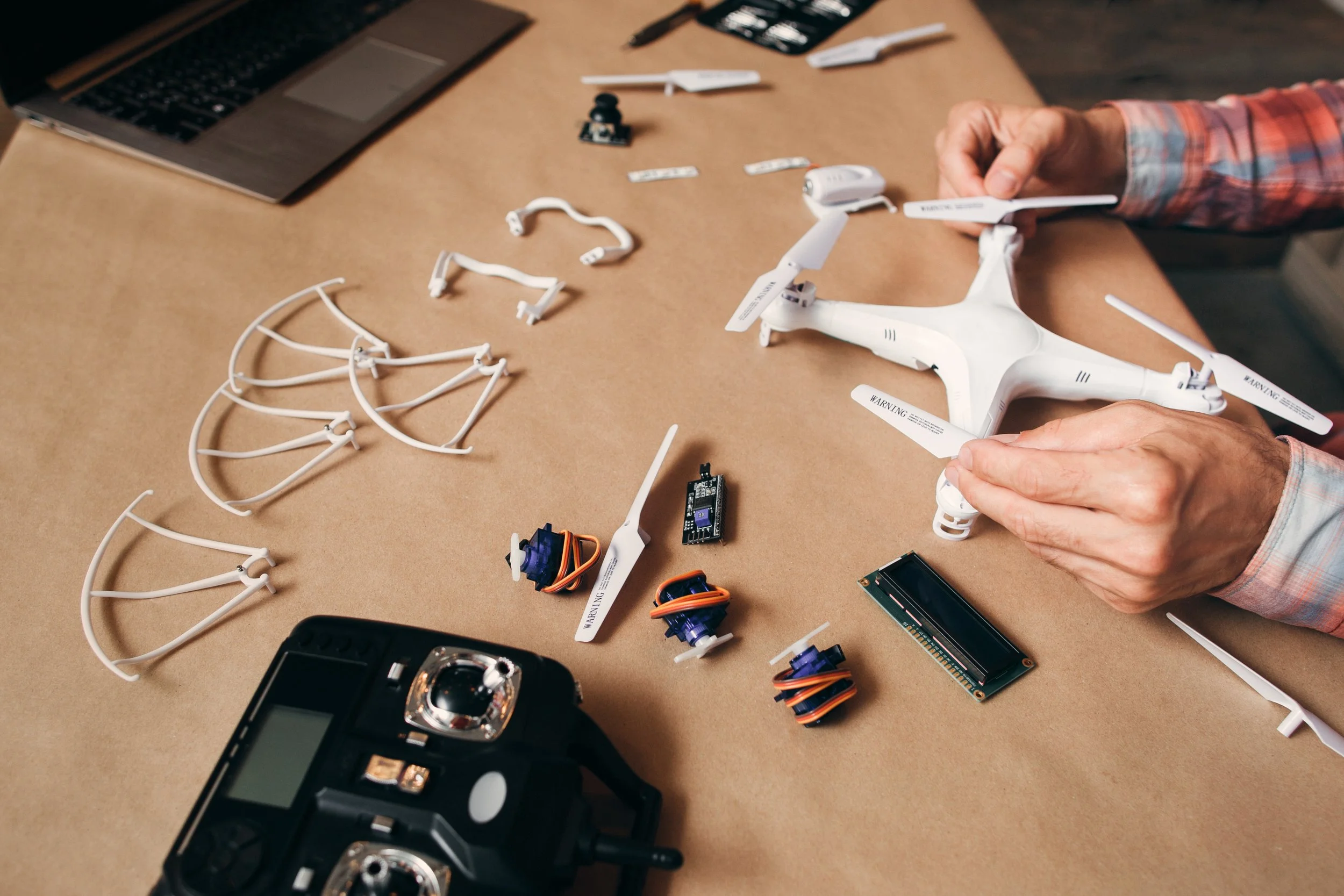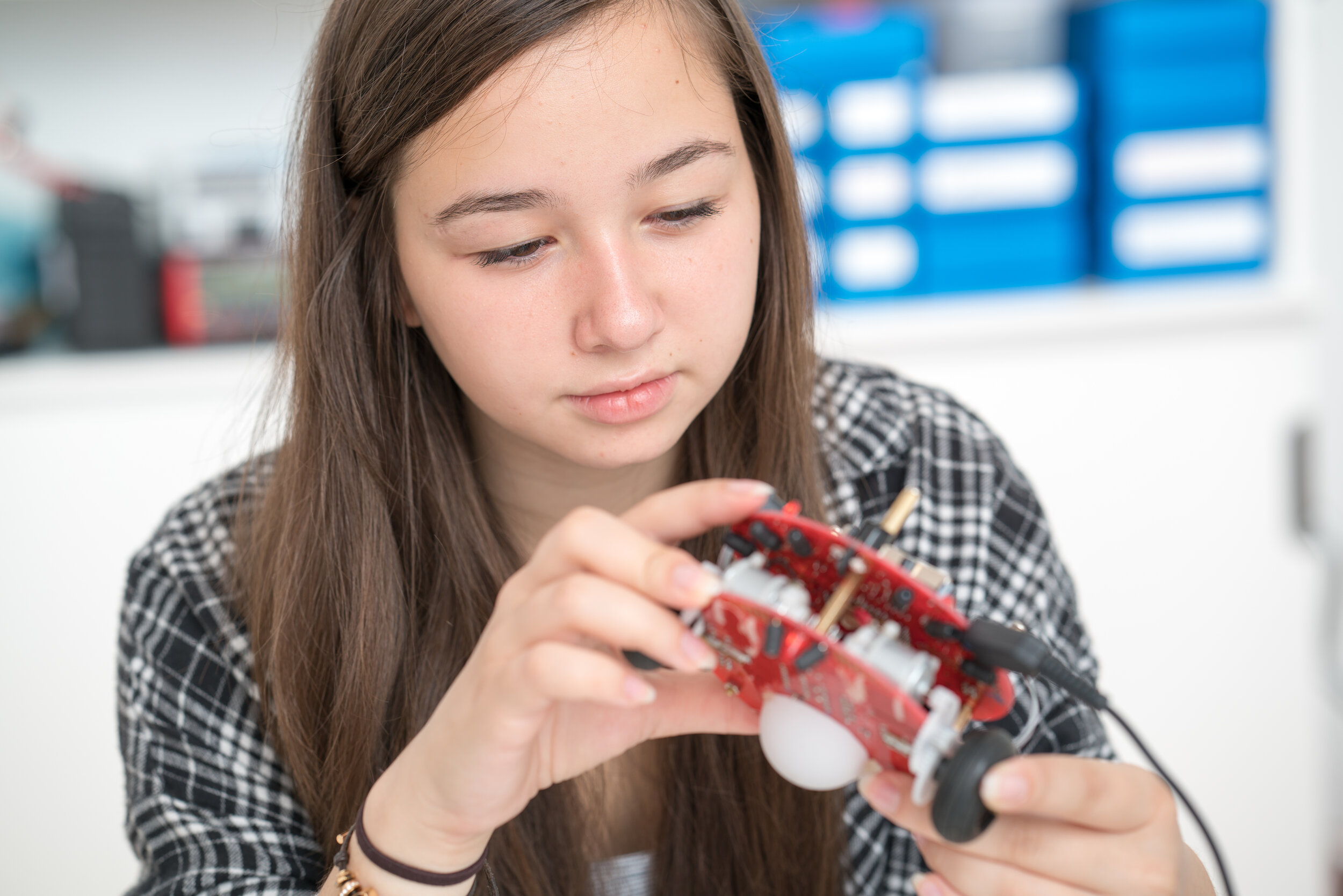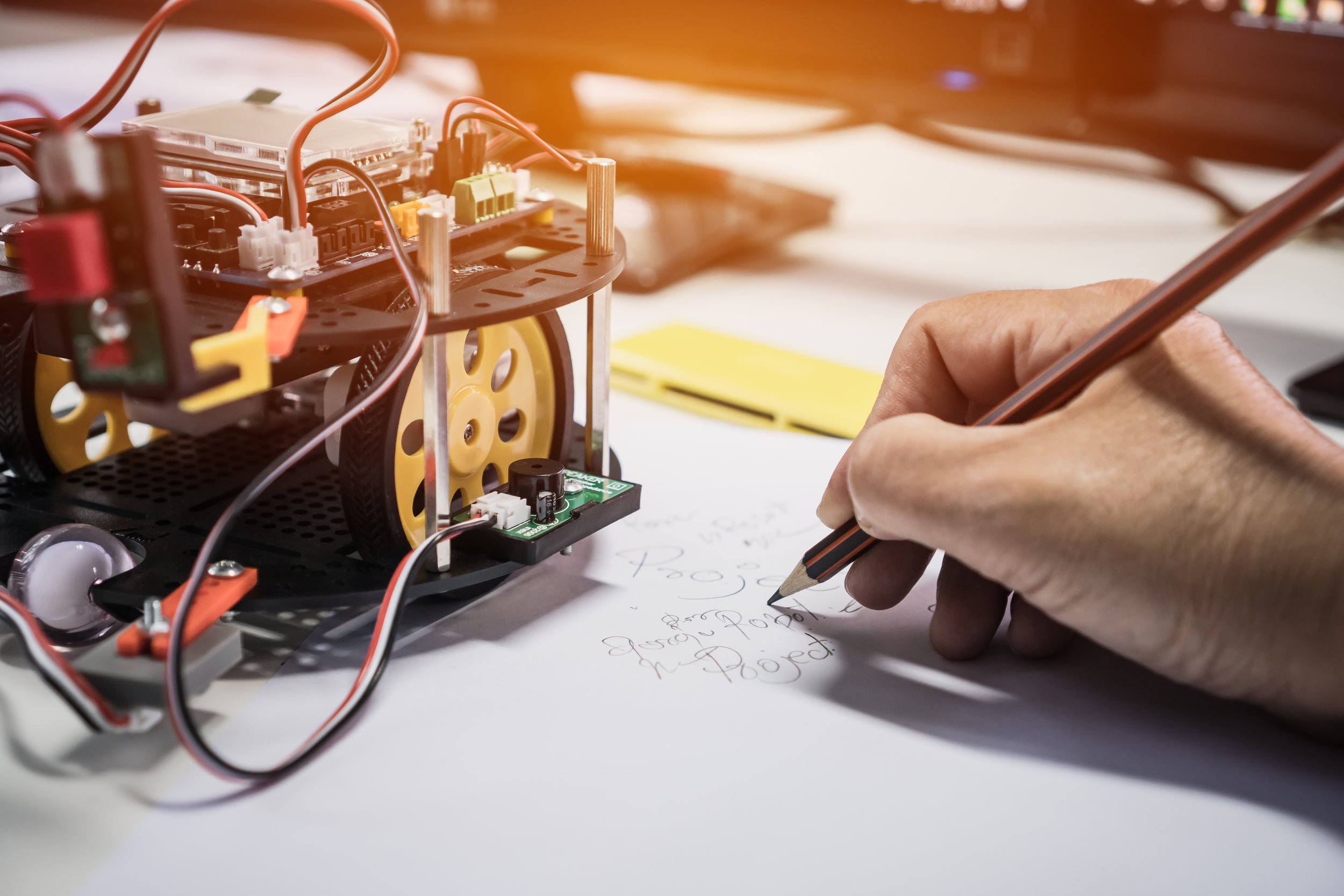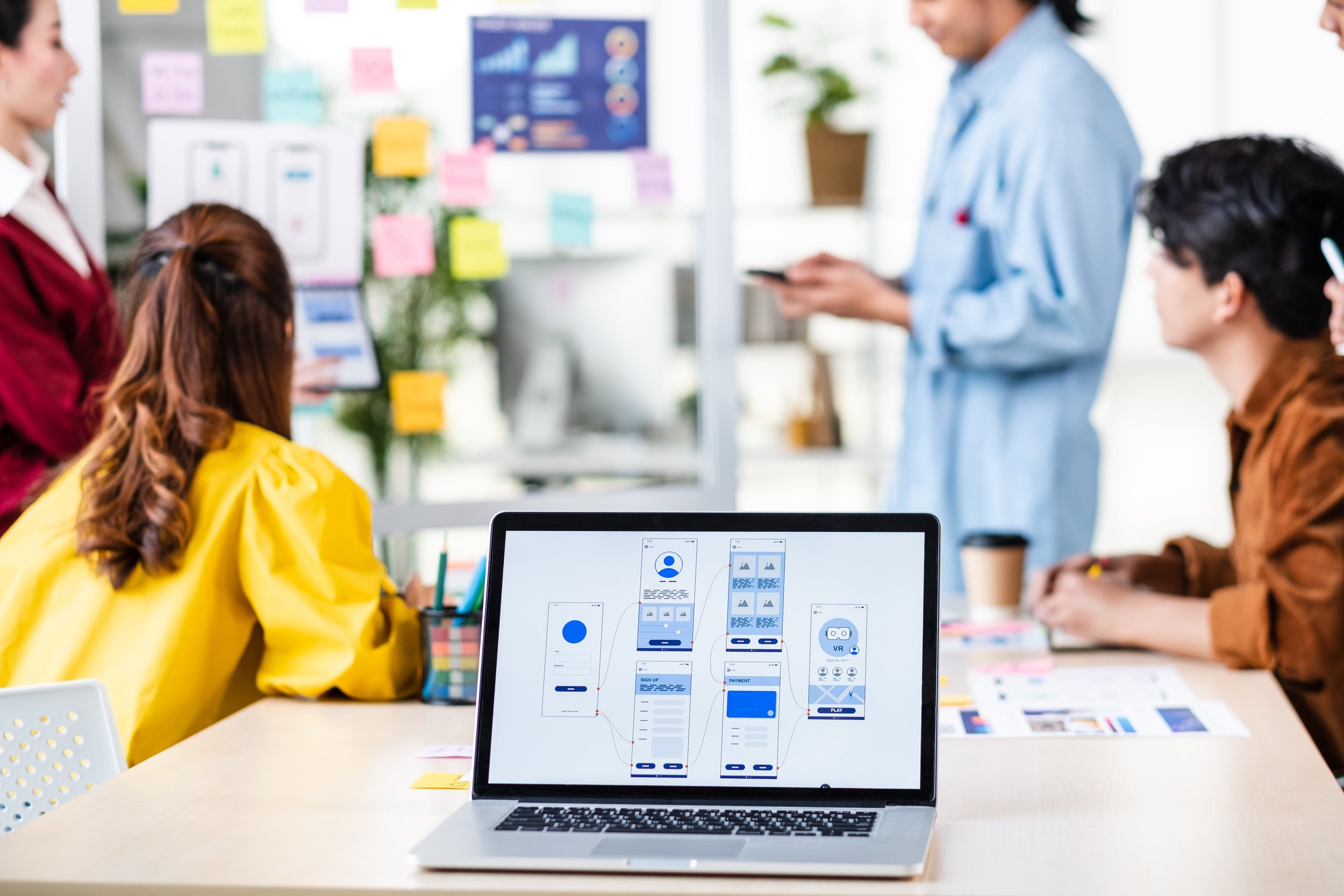Internship Experiences
Milestone C instructors deliver the signature camps listed below, currently available in Connecticut. Each program can be delivered either after-school or as a summer camp. Aside from specialized technical knowledge in subject areas, essential learning outcomes include 5 professional skills categories critical to success in 21st century STEM industries:
Critical Thinking & Problem Solving | Leadership & Teamwork | Professional Conduct & Confidence | Communication & Conflict Resolution | Public Speaking & Formal Presentation
High School (Grades 9-12)
Advanced Engineering & Aviation (AEA)
Grades: 9-12 | Duration: 28-32 hrs.
Basic engineering system integration & airmanship skills
Drone Engineering Intensive (DEI)
Grades: 9-12 | Duration: 14-16 hrs.
Design, build, and fly your own racing drones in teams
Intro. to Engineering & Aviation (IEA)
Grades: 9-12 | Duration: 28-32 hrs.
A hands-on aerospace experience
Public Speaking & Presentation (PSP)
Grades: 9-12 | Duration: 8 hrs.
Build the confidence to influence
Coding and Raspberry Pi (CRP)
Grades: 9-12 | Duration: 20-30 hrs.
Learn Python though application with a Raspberry Pi
Aviation Cadet Experience (ACE)
Grades: 9-12 | Duration: 9-12 hrs.
Fly simulators - learn aerodynamics the way Air Force pilots do
Future Aviators Academy (FAA)
Grades: 9-12 | Duration: 14-16 hrs.
The ultimate aviation exploration laboratory
Mechanics and Electronics of Robots (MEA)
Grades: 9-12 | Duration: 15-20 hrs.
Learn the “under the hood” of robotics.
Robotics & Automation Fundamentals (RAF)
Grades: 9-12 | Duration: 28-32 hrs.
Grooming future robotics engineers
Basic Web Development (BWD)
Grades: 9-12 | Duration: 15-20 hrs.
Explore 21st century web development
Middle School (Grades 6-8)
Drone Building Workshop (DBW)
Grades: 6-8 | Duration: 5-10 hrs.
Build & fly your own drones in teams
App & Software Design (ASD)
Grades: 6-8 | Duration: 15-20 hrs.
Practice software design by bringing apps to life
Junior Robotics & Automation (JRA)
Grades: 6-8 | Duration: 16-32 hrs.
Build, program, and operate a Hexapod robot
App Development & Robotics (ADP)
Grades: 6-8 | Duration: 15-20 hrs.
Develop apps and control robots
Junior Flight School (JFS)
Grades: 6-8 | Duration: 12-15 hrs.
Learn how airplanes fly by piloting simulators & drones
Advanced Engineering & Aviation (AEA)
Grades: 9–12
Duration: 28–32 Hours
Minimum Class Size: 10 students
Building on the IEA foundation, AEA catapults the student experience into intermediate topics in aerospace, transitioning from the “What?” and “How?” into the “Why?”.
In the engineering block, student teams venture into system integration (vs. system design), where they modify their baseline racing drones with wireless cameras and First-Person View (FPV) piloting systems. In preparation for flight test, a significant amount of time is also spent on FPV drone flight training using simulators as well as actual drones.
Aviation ground school takes a deeper dive into aerodynamics, allowing students to grasp the reasons behind scientific principles they had previously taken as facts, using nothing more than basic algebra. The simulator flight school portion focuses on cross-country mission planning and execution.
Aviation Cadet Experience (ACE)
Grades: 9–12
Duration: 9–12 Hours
Minimum Class Size: 10 students
As the only program of its kind available to high school students, ACE brings the adrenaline-fueled world of aviation into the safety and comfort of the classroom. Students are placed in a simulated flight school environment where they learn about the physics & physiology of high-performance flight before testing their piloting skills on Milestone C’s realistic flight simulators.
Drone Engineering Intensive (DEI)
Grades: 9–12
Duration: 14–16 Hours
Minimum Class Size: 10 students
Learn about engineering and technology by building & flying racing drones! The Milestone C team of aerospace industry professionals employs cutting-edge technologies and experiential learning techniques to equip students with key engineering skills. In this flagship workshop, DEI students will learn about basic aerodynamics and unmanned aircraft architecture, and then apply the engineering process to design, build, and test their own drones in teams, emulating the life cycle of a real-world engineering program from beginning to end.
Future Aviators Academy (FAA)
Grades: 9–12
Duration: 14–16 Hours
Minimum Class Size: 10 students
As the first of its kind available to high school students, FAA is the ultimate aviation exploration laboratory where dreams take flight! Developed and instructed by veteran aviators and aerospace engineers, FAA launches students into a real-world flight school experience in the safety of the classroom. The primary objective of the FAA progression is to put high school math and science classes into applied context through the thrilling real-world framework of aviation. As students plan, brief, execute, and debrief realistic mission scenarios; pilot advanced flight simulators; explore careers in aviation; and work in teams to survive simulated emergencies, they will acquire key professional skills useful beyond the confines of aviation.
Introduction to Engineering & Aviation (IEA)
Grades: 9–12
Duration: 28–32 Hours
Minimum Class Size: 10 students
Look no further if you have been searching for the experience to give your college application a much-needed edge! IEA is a hands-on aerospace experience–the first of its kind in STEM education and like none other. Designed as an internship-style experience to develop future professionals, IEA builds key college & career skills in a project-based setting.
This experience revolves around an engineering project where students design, build, and fly racing drones from scratch, emulating real-world engineering practices. However, they must first understand the basics of aerodynamics and flight, learn to work effectively in teams, and master the skill of giving technical presentations.
Student teams will pilot advanced flight simulators; design, build, & fly drones; practice public speaking through design reviews; network with distinguished guest speakers; and experience team-building simulations originally designed for corporate executives. Advanced personality type instruments are also administered to complement instruction on communication & conflict resolution in cross-functional team environments.
Mechanics and Electronics of Robots (MEA)
Grades: 9–12
Duration: 15–20 Hours
Minimum Class Size: 10 students
Understanding how robots’ mechanical and electrical parts fit together is a tough task. Being able to delve into the subcomponents requires a higher level of understanding.
MEA will bring students under the hood of robots and they will dive into the pieces and parts of robots to gain a fundamental understanding of mechanical and electrical parts. This knowledge and experience will turn students into young tinkerers!
Public Speaking & Presentation (PSP)
Grades: 9–12
Duration: 8 Hours
Minimum Class Size: 15 students
Build the confidence to influence! The ability to concisely and effectively communicate in the 21st century STEM workplace is just as important as technical competence. Public speaking and formal presentation skills have become an integral part of day-to-day job functions, as well as college and early career interviews. PSP utilizes Milestone C’s trademark techniques to build public speaking and presentation skills, proven by our staff’s expansive experience working as leaders and managers at Fortune 500 corporations.
Robotics & Automation Fundamentals (RAF)
Grades: 9–12
Duration: 28–32 Hours
Minimum Class Size: 10 students
To an outside observer, this may appear to be a niche industry. However, robotics is interwoven into the fabric of every single engineering and scientific industry from aerospace and automotive to medicine and nuclear physics. RAF features state-of-the-art technologies to illustrate fundamentals of articulation, feedback loops, and automation while continuing to define the cutting edge of STEM education at each step. This camp is fundamentally project-based, with increasing levels of complexity and an overarching design project, testing students’ critical thinking, collaboration, and communication skills throughout.
Coding and Raspberry Pi (CRP)
Grades: 9–12
Duration: 20–30 Hours
Minimum Class Size: 10 students
Students of today can choose their future careers if they are savvy in the world of software. CRP teaches students the software design process while introducing them to Python. The students then apply their skills and explore the exciting world of Raspberry Pis. Raspberry Pis allow students real-world applications of software and exploration of the world of software and coding.
Basic Web Development (BWD)
Grades: 9–12
Duration: 28–32 Hours
Minimum Class Size: 10 students
Web development is not simply website design; in today’s world web development runs the world. How data is presented, how companies are discovered, and how people interpret their world all stem from web development. Students are invited into this world and learn the basics of the internet and web development.
Drone Building Workshop (DBW)
Grades: 6–8
Duration: 5–10 Hours
Minimum Class Size: 10 students
Drones have captured the next generation’s imagination and are undoubtedly the way of the future! Most students know how to fly them. Now, it’s time to build their own drones while working in teams. DBW students will learn about basic flight science, pilot realistic drone simulators, apply the engineering process, and, finally, compete against other teams in a drone challenge!
App Development & Robotics (ADP)
Grades: 6–8
Duration: 15–20 Hours
Minimum Class Size: 10 students
Apps and robotics go hand in hand. Whether an underwater research robot or a NASA Mars rover, apps and software allow humans to control and interface with their robotic counterparts. Apps are becoming more and more integrated into our world and students need to gain skills, knowledge, and a comfort level with building apps and controlling robots since this is, and will continue to be, a central part of their world.
App & Software Design (ASD)
Grades: 6–8
Duration: 15–20 Hours
Minimum Class Size: 10 students
Apps run the world today and are used by younger generations to do everything from ordering food, to doing school work, to staying connected with friends. In this exciting program, students explore how to create their own apps and load them on their device. They learn about the development process, the functionality of their devices, and how that can be utilized to bring their vision to life in their self-built app.
Junior Flight School (JFS)
Learn how airplanes fly by piloting simulators and drones
Grades: 6–8
Duration: 12–15 Hours
Minimum Class Size: 10 students
Fly simulators, drones, and let your dreams take flight! In this exciting aviation exploration laboratory, possibilities are bound only by imagination! Instructed by veteran pilots and aerospace engineers, JFS allows students to learn by doing and sparks early interest & motivation in STEM. Level 1 introduces basic flight science fundamentals and hands-on piloting skills.
Junior Robotics & Automation (JRA)
Grades: 6–8
Duration: 16–32 Hours
Minimum Class Size: 10 students
Robotics is interwoven into the fabric of every single engineering and scientific industry from aerospace and automotive to medicine and nuclear physics. JRA features state-of-the-art technologies and introduces students to basic electronics, mechanics, and block coding. This camp is fundamentally project-based, offering an ideal hands-on laboratory to practice critical thinking, collaboration, and communication.
